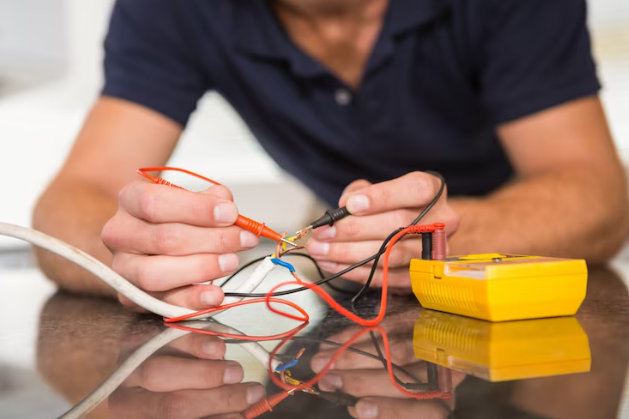Overview:
Dive into the fundamentals of electronics with our Basic Electronics Course. Whether you’re a hobbyist or aspiring technician, this course will demystify the complexities of electronic circuits. From understanding components to mastering circuit analysis, you’ll develop a solid foundation in electronics principles.
Learning Outcomes:
- Gain a thorough understanding of electronic components and their functions.
- Learn to analyze and troubleshoot basic electronic circuits effectively.
- Acquire practical skills in soldering, breadboarding, and circuit assembly.
- Explore essential concepts such as Ohm’s Law, Kirchhoff’s Laws, and circuit analysis techniques.
Description:
Embark on a journey through the world of electronics with our comprehensive Basic Electronics Course. This course is designed to equip beginners with the essential knowledge and skills needed to understand and work with electronic circuits. Through a blend of theoretical learning and hands-on practical exercises, you’ll delve into topics such as voltage, current, resistance, and circuit analysis. Whether you’re interested in pursuing a career in electronics or simply want to explore a fascinating field, this course is your gateway to unlocking endless possibilities.
Who Is This Course For?
This course is ideal for beginners with little to no prior knowledge of electronics who are eager to learn the fundamentals. It’s perfect for hobbyists, students, DIY enthusiasts, and anyone interested in understanding how electronic devices work.
Career Path:
Upon completing this course, you’ll be equipped with the foundational knowledge and skills to pursue various career paths in the field of electronics. You could explore roles such as electronics technician, repair technician, technical support specialist, or continue your education in electronics engineering or related fields.

 3.2 Hours
3.2 Hours Course Certificate
Course Certificate




 15 Student
15 Student


